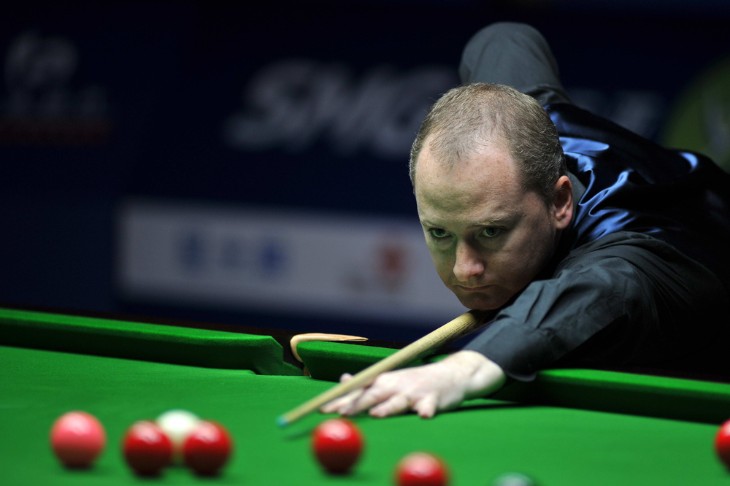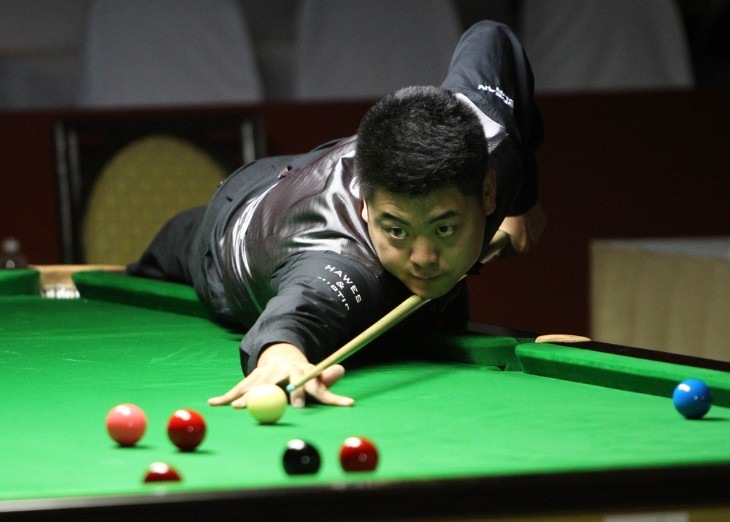- Understanding Snooker: The Foundation of Effective Betting
- The Role of Research in Snooker Betting: Gathering Crucial Information
- Assessing Player Form and Historical Performance: Key to Smart Betting
- The Importance of Match Conditions in Snooker Betting
- Utilizing Odds Analysis: Making Informed Betting Decisions
- The Strategic Approach to In-Play Betting in Snooker
- Bankroll Management: A Key Aspect of Betting Strategy
- The Psychology of Betting: Keeping a Level Head
- Final Takeaway
Welcome to the thrilling world of snooker betting! Snooker, a game of skill and strategy, has become a hotbed for sports betting enthusiasts. This article delves deep into the most successful snooker betting strategies, offering valuable insights for both beginners and seasoned bettors.
Whether you're looking to refine your betting approach or just starting, understanding these strategies is key to placing smarter bets and increasing your chances of success.
Understanding Snooker: The Foundation of Effective Betting
Betting on snooker requires not just an understanding of the game's mechanics but also an insight into the subtleties that influence player performance and match outcomes. Here are key considerations for effective snooker betting:
Game Rules and Structure: Familiarity with the rules of snooker is fundamental. Players alternate turns, aiming to pot red and coloured balls in sequence to accumulate points. The game's objective is to score more points than the opponent, with matches divided into frames. The player winning the most frames wins the match. Understanding this structure helps in assessing potential outcomes based on the format of the competition.
Player Styles: Players have distinct styles that can affect their performance in different conditions. Aggressive players may excel in conditions that favor bold shots and high break-building, whereas defensive players might have the edge in tactical battles. Recognizing a player's style can provide insights into potential match-ups and their outcomes.
Form and Momentum: A player's current form is a critical indicator of their potential performance. Players on a winning streak may carry momentum into their matches, while those with recent losses might lack confidence. Monitoring recent performances and tournament results can guide betting decisions.
Match Formats: The length and format of a match can influence its outcome. Some players perform better in short, fast-paced matches, while others excel in longer matches that require stamina and consistency. Understanding how a player's game aligns with the match format can be crucial for predicting the winner.
Rankings and Head-to-Head Records: A player's world ranking and history against potential opponents offer valuable context for betting. High-ranking players are generally more consistent, but head-to-head records can reveal patterns or psychological edges that might influence a match's result.
Tournament Conditions and Venues: Conditions such as table speed, lighting, and even venue atmosphere can impact player performance. Some players may perform better under specific conditions or in certain venues, affecting their chances in a tournament.
The Role of Research in Snooker Betting: Gathering Crucial Information
Conducting thorough research is indispensable for anyone looking to succeed in snooker betting. It entails compiling and analyzing various types of information to form educated predictions about match outcomes. Here are key areas to focus on during your research:
Player Statistics: Delve into detailed statistics such as players' win-loss records, break-building proficiency, and historical performance in specific tournaments. These metrics provide a solid foundation for assessing a player's capabilities and potential match outcomes.
Recent Form: Analyze players' performances in recent tournaments and matches. Players in a streak of good form are generally considered safer bets. However, be mindful that form can fluctuate, and even top players can experience slumps.
Head-to-Head Records: Investigate the historical matchups between players. Some players may consistently perform well against certain opponents due to style matchups or psychological factors. These records can offer valuable insights into potential match dynamics.
Tournament Format and Conditions: Familiarize yourself with the specific formats and conditions of each tournament. The number of frames, type of elimination rounds, and even the venue can influence a player's performance. Certain players may have a track record of excelling in specific formats or conditions.
Table and Venue Conditions: Consider the physical conditions, including table speed, cloth type, and venue atmosphere. Players may have preferences or proven records under specific playing conditions, impacting their performance.
Psychological Factors: Evaluate players' mental fortitude and psychological resilience. This includes their ability to handle high-pressure situations, maintain focus throughout long matches, and recover from setbacks. Players with strong mental game are often more reliable in crucial moments.
Snooker News and Updates: Stay informed about the latest snooker news, including player injuries, changes in coaching staff, or personal milestones. Such factors can affect a player's focus and performance.
Effective research for snooker betting is not just about gathering data but also about analyzing and interpreting this information to make well-informed bets. By focusing on these areas, you can develop a nuanced understanding of the sport, enabling you to spot value bets and make strategic wagering decisions.

Assessing Player Form and Historical Performance: Key to Smart Betting
In the nuanced world of snooker betting, evaluating a player's form and historical performance is crucial for placing informed bets. Here's a guide to understanding these critical aspects:
Analyzing Current Form: A player's current form is a direct indicator of their recent performance level. Examine the outcomes of their latest matches, focusing on victories, margins of victory, and the quality of opponents beaten. Consistency in winning or putting up strong performances against top-ranked players can signal a player in peak form.
Historical Performance Insights: A player's track record in specific tournaments, against certain opponents, or at particular venues provides valuable betting insight. Players often have patterns of success or struggle in specific conditions or events, which can guide predictions for future performances.
Pressure Situations: Identifying players who perform well under pressure can be a significant advantage. Review past matches that went to deciding frames or where a player staged a remarkable comeback. Performers in these scenarios are likely to have a psychological edge in tight contests.
Style of Play: The strategic approach of a player—whether aggressive and risk-taking or cautious and tactical—can influence match outcomes, especially when considering the style matchup against their opponent. Aggressive players may dominate fast-playing conditions, while tactical players might have the edge in matches requiring patience and precision.
Physical Condition: Physical fitness and any known injuries are critical factors to consider. An injury can drastically affect a player's ability to perform, especially in long-format tournaments. Keep updated with snooker news and reports for any mentions of player injuries or health issues.
Player Comparisons: Comparing competing players' skills, experience, form, and historical head-to-head records can illuminate potential outcomes. Look for patterns or statistical advantages that might not be immediately obvious but could influence the match.
The Importance of Match Conditions in Snooker Betting
Understanding the importance of match conditions is essential for making informed decisions in snooker betting. These conditions significantly affect the game's outcome, offering a strategic advantage for those who consider them. Here are the key points to keep in mind:
- Type of Table: The size of the snooker table and its speed play a crucial role. Players have preferences depending on the table's speed, which can influence their performance.
- Pocket Size: The ease of potting balls varies with the pocket size. Wider pockets may benefit aggressive players, while tighter ones could favor those with precision.
- Venue Conditions: The atmosphere, including lighting and temperature, can impact a player's comfort and performance. Previous success in a venue could indicate a potential advantage.
- Tournament Format: Different formats, such as the required number of frames to win, can affect players differently. Some are better suited to long matches, while others thrive in shorter ones.
- Tournament Stage: A player's performance can vary at different tournament stages. Recognizing patterns in how players handle early rounds versus the pressure of later stages can be insightful for betting strategies.
Incorporating these factors into your betting approach can enhance your chances of success by providing a deeper understanding of how various conditions affect players' performances.
Utilizing Odds Analysis: Making Informed Betting Decisions
Odds analysis plays a crucial role in enhancing your snooker betting strategy. It offers insights into the probabilities of match outcomes, guiding you to place more informed bets. Here's a concise overview of effectively utilizing odds analysis:
- Understanding Odds: Recognize that odds reflect the probability of an event occurring. Lower odds indicate a higher likelihood of an event, signalling a favourite in the match.
- Comparing Bookmaker Odds: Different bookmakers may offer varying odds for the same event. Comparing these can help you find the best value for your bets, potentially increasing your winnings.
- Odds Formats: Familiarize yourself with the different formats odds can be presented in, such as decimal or fractional, to accurately interpret them. Understanding how to read these formats is fundamental to effective betting.
- Identifying Value Bets: Look for bets where the odds offered are greater than the expected likelihood of the event occurring. These represent opportunities where the potential return outweighs the risk.
- Implied Probability Calculation: Use the odds to calculate the implied probability of an outcome. This calculation allows you to assess whether there's value in a bet based on your own analysis.
- Monitoring Odds Fluctuations: Be mindful of changes in odds, which can be influenced by various factors like player form or betting trends. This can affect the value of your bets.
- Integrating Research: While odds provide a statistical foundation, integrating them with comprehensive research and knowledge of snooker can significantly improve your betting decisions.
The Strategic Approach to In-Play Betting in Snooker

Bankroll Management: A Key Aspect of Betting Strategy
Bankroll management is a foundational aspect of a successful betting strategy, particularly in the realm of snooker betting. It ensures that you can withstand losses without significant financial detriment, thereby extending your betting activity and enhancing enjoyment. Here are essential guidelines for managing your bankroll effectively:
- Set a Betting Budget: Determine the total amount of money you are willing to allocate for betting, which should be an amount you can afford to lose without impacting your essential financial responsibilities.
- Establish a Betting Unit: Assign a fixed percentage of your total bankroll as your standard bet size, typically ranging from 1% to 5%. This approach helps maintain a consistent betting strategy and manages risk.
- Adhere to Your Betting Unit: Consistency in the size of your bets is key. Avoid the temptation to increase your bet size based on confidence levels in specific outcomes to prevent disproportionate losses.
- Track Your Betting Activity: Maintain a record of all your bets, including amounts wagered, odds, and outcomes. This practice provides valuable insights into your betting performance and identifies patterns or strategies that yield better results.
- Adjust Your Betting Unit as Necessary: If your bankroll increases or decreases significantly, recalibrate your betting unit accordingly. This adaptive strategy ensures that your betting remains proportionate to your available funds.
- Avoid Chasing Losses: Resist the urge to increase bets following losses in an attempt to recover funds quickly. Such behavior can lead to greater losses and undermine your bankroll management strategy.
- Prioritize Enjoyment: Betting should remain a pleasurable activity. If it ceases to be enjoyable or begins to adversely affect your life, consider taking a break. The goal is to ensure betting remains a controlled and entertaining pastime.
The Psychology of Betting: Keeping a Level Head
Final Takeaway
Successful snooker betting is a blend of in-depth knowledge of the game, thorough research, understanding betting odds, strategic in-play betting, effective bankroll management, and psychological discipline. By employing these strategies, bettors can enhance their betting skills and increase their chances of success.
Remember, betting should always be done responsibly, with an emphasis on enjoyment and sensible risk-taking. With the right approach and mindset, snooker betting can be a rewarding and exciting endeavour.
For more information:




.webp)


 (1).webp)




















